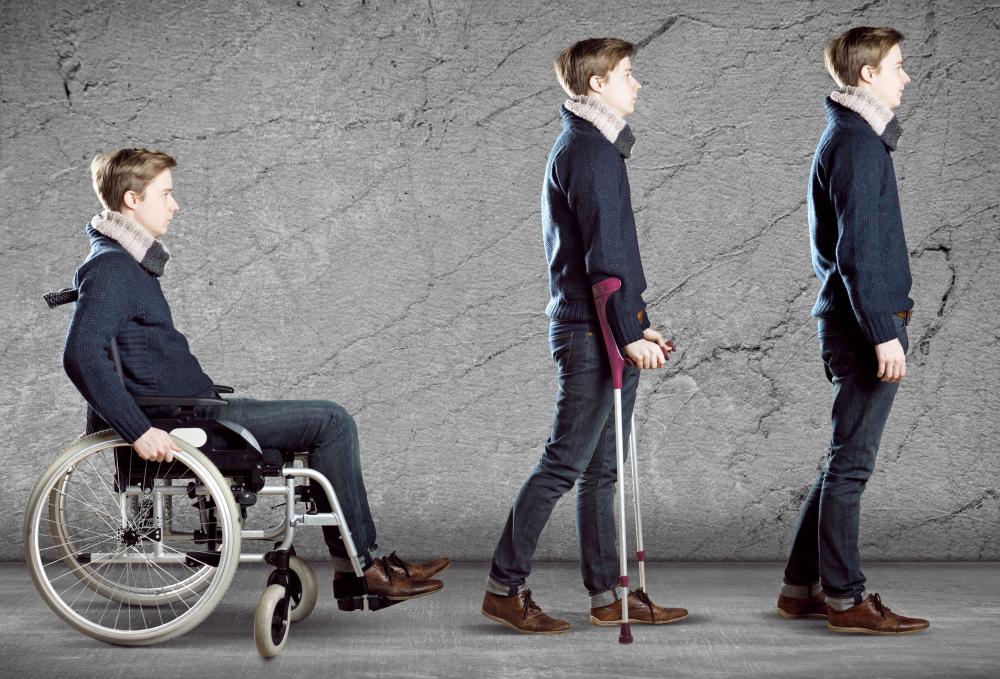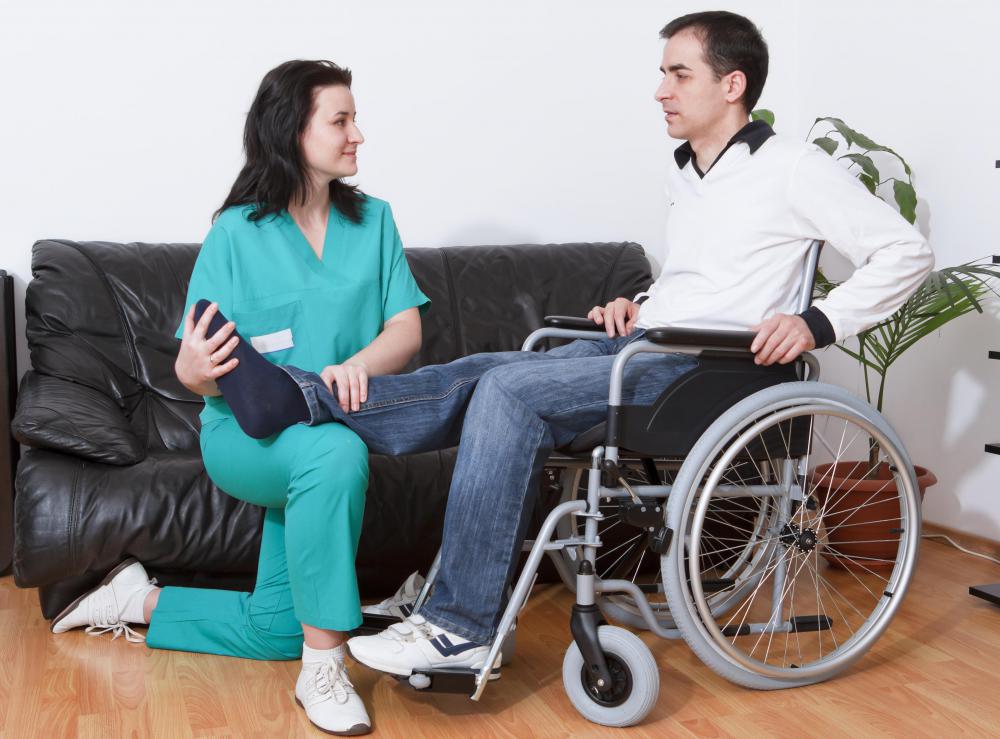At WiseGEEK, we're committed to delivering accurate, trustworthy information. Our expert-authored content is rigorously fact-checked and sourced from credible authorities. Discover how we uphold the highest standards in providing you with reliable knowledge.
What are the Different Types of Paralysis Treatment?
There are many types of paralysis treatment. Choosing the correct type will depend upon the extent of injury or disease. If there has been spinal cord injury, paralysis surgery may be necessary. Nerve disease may require various medications, while periodic paralysis due to an ongoing illness may require some type of physical therapy. Another type of paralysis treatment may involve electrical stimulation.
Reconstructive surgery may be recommended for the patient who has sustained significant damage to the nerves. This may help in less severe cases of partial or even full paralysis. This type of surgery is performed by a team of specialists who treat neurological or spinal malfunction and disease.

A disease known as neuropathy affects nerves in specific areas of the body. For example, in some advanced stages of this disease, the hands may become so affected and dysfunctional, that paralysis treatment may be necessary to restore mobility. Some forms of paralysis treatment for neuropathy include the use of prescription drugs, physical therapy, or surgery. In many cases, a combination of all three may be prescribed.

Partial paralysis may occur from any number of reasons and causes, including disease or injury. Many patients who have suffered from a stroke may require therapy and partial paralysis treatment. Physical therapy and at home exercises may often help those who have sensation in many parts of the body, but decreased function in a localized area. In cases of spinal cord damage due to trauma, reconstructive surgery may be the only option to restore full function.

There is a condition known as sleep paralysis that renders the individual powerless to move while asleep. This phenomenon has perplexed many experts and reasons for the condition remain a mystery. Advanced treatments have shown positive results, however, in many patients who have no other known medical conditions or disease. Certain medications have been known to reduce symptoms, although physicians recommend behavioral modification for best results. This may include reducing stress, cutting caffeine in the diet, and getting proper rest and nutrition.

Paralysis treatment in the form of electrical stimulation may be effective for some patients suffering from nerve damage. Many recovering stroke victims have benefited from this treatment, although recovery typically depends upon the extent of damage to the brain or spinal cord. In electrical stimulation therapy, the individual receives electricity targeted to the muscle or nerves that are affected. As the name implies, it is meant to stimulate nerve endings, so that the nerves may repair faster.
AS FEATURED ON:
AS FEATURED ON:















Discuss this Article
Post your comments